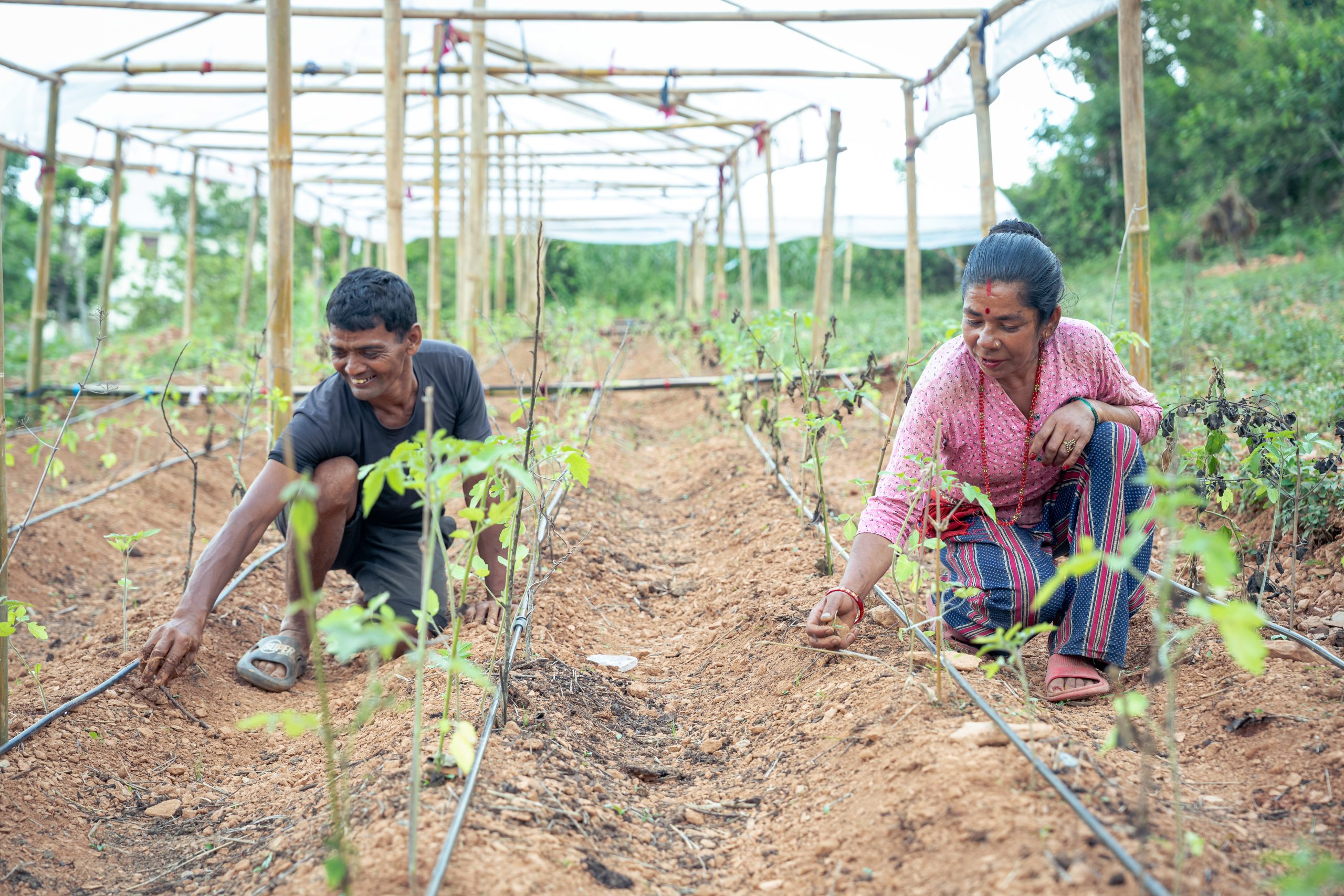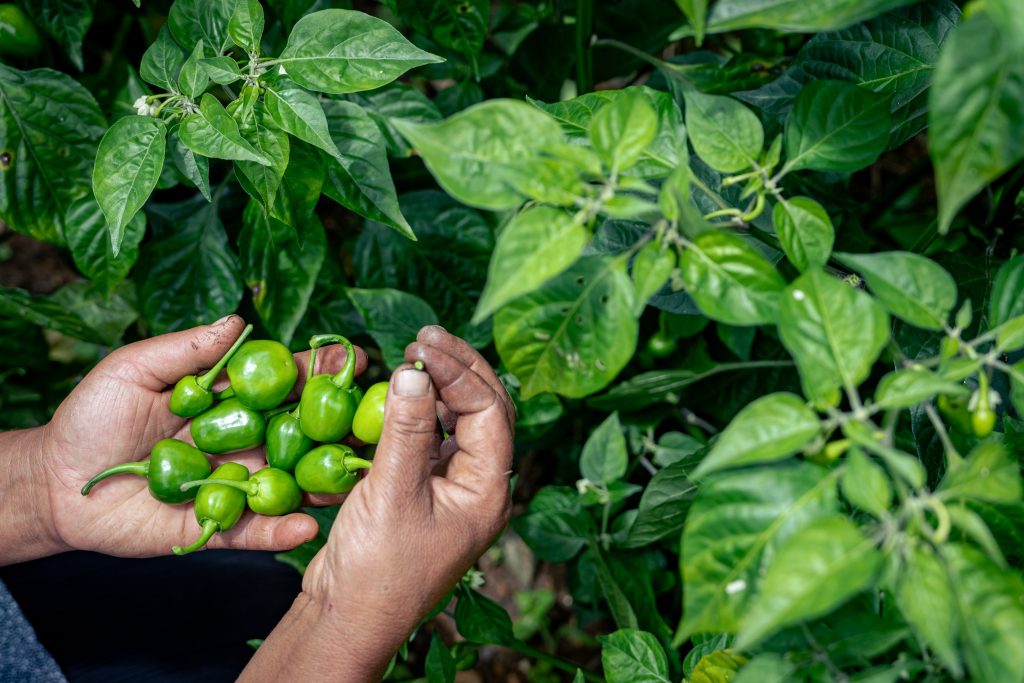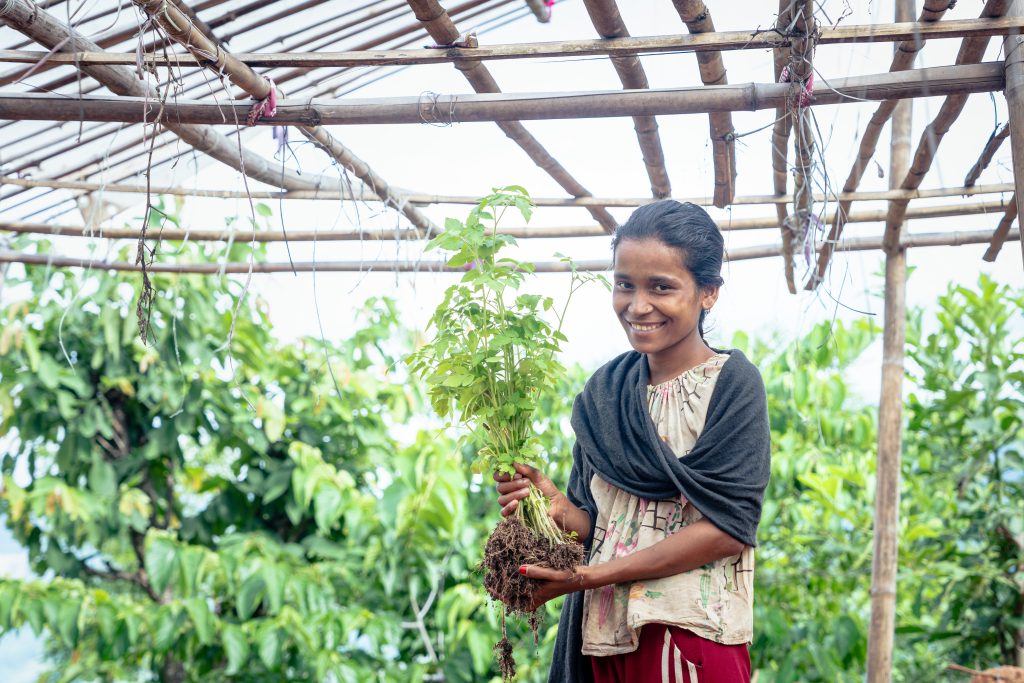
“Our living standards have changed just as a snake sheds its skin,” said Kumar Pariyar, 48, a Dalit farmer from Tinpiple village, Okhaldhunga. Suppose Kumar’s analogy of a snake changing its skin is dramatic. In that case, it is only because he, as a Dalit farmer himself, has witnessed firsthand the remarkable changes that the marginalized Dalit farming community in Tinpiple village has gone through.
While economic empowerment is new to the Dalit farmers of Tinpiple, farming is not. Although they have always produced rainfed maize and millet for themselves, they were not aware that planting vegetables could earn them a living. In 2022, the UNDP’s Developing Climate Resilient Livelihoods in the Vulnerable Watershed in Nepal (DCRL) project provided training for farmers in Tinpiple. It introduced tunnel farming for off-season crops, raised awareness about water conservation, and prompted locals to reuse water from washing and laundry on their farms, alongside rainwater harvesting. “We didn’t know these things before. The project’s training and exposure visits taught us,” said Kumar. “Now, we see nature as a livelihood and focus on farming and livestock.”
Tinpiple village has suffered from drought for decades. Women and girls had to walk for hours to fetch drinking water. Through DCRL’s work on protecting water sources, building irrigation ponds, roof rainwater harvesting systems, plastic farming tunnels, trenches, water holes, and multi-purpose ponds, the groundwater in this barren village has now been recharged. Water is now available year-round, and drip irrigation, for instance, has made vegetable farming—especially tomatoes—possible.

Today, with DCRL support, Kumar and several other farmers like him are successfully cultivating tomato, beans, bitter gourd, chayote (skush), turmeric, spinach, and ridge gourd in tunnel farms on land they never thought they could farm. Kumar believes his work has redefined his identity, from that of a low-wage labourer to an inspired farmer. He is now earning at least Rs. 150,000 each year. In the first year, Kumar’s family initiated vegetable farming in a single plastic tunnel and earned Rs. 60,000. From spending time looking for jobs to being busy throughout the year on his farm, Kumar’s life has changed dramatically. “I am happy that I am finally self-employed, but I am happier about the deep connection I now feel with this steep, rocky, and barren land that I call home.”
Together with his neighbor, Kumar’s family is now looking to lease land so they can expand their farm to 23 tunnels. Kumar’s tunnel farm has inspired all 19 Dalit farmers of the village to start tunnel farming on a smaller scale through the Tinpiple Farmers Group.

Kumar has had some schooling, while his wife has not, so they have both always aspired to provide a strong educational foundation for their children. They’ve invested in their son and daughter-in-law’s education in Kathmandu. While Bimala tends to the farm, Kumar delivers fresh vegetables on their motorbike to the Okhaldhunga bazar. Some of the fresh vegetables always reach their children in Kathmandu.
The DCRL project has also helped rebuild the livelihoods of Dalit communities by enabling conservation farming practices. This intervention promotes nature-based income diversification, improved food security, boosted productivity, and strengthened ecological functionality of farming landscapes, including in Tinpiple. A total of 101 Dalit community members from across Khotang and Okhaldhunga were trained to this end.
Improved earnings from farming have also empowered members of marginalized communities, encouraging them to voice their concerns about relevant policies, local government budgeting and programs, planning work, and implementation at the municipal level.
Tinpiple’s Dalit community used to be largely excluded from such opportunities by the so-called upper-caste neighbors. This had led to a longstanding belief that they would never have the right to speak up. But newfound economic empowerment has rewritten these beliefs and lent them bargaining power and a seat at the decision-making table. “Our voices are represented—we are recognized as human,” said Bimala Pariyar, Kumar’s wife.